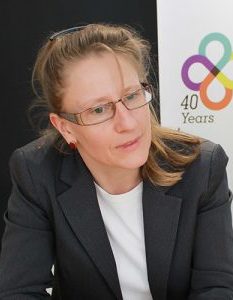At PROTECT’s virtual conference on 26 – 27 August, we will present our midterm findings and discuss their policy relevance. On day one (26 August), our researchers will give bite-sized presentations of our Work Package findings, which are all dedicated to studying the impacts of the Global Compact on Refugees (GCR) and the Global Compact for Migration (GCM) in different manners. The conference will feature a keynote address by Professor James C. Hathaway, University of Michigan Law School.
Day two (27 August) is dedicated to two plenary panels; a Policy Forum and an Academic Forum. While the Policy Forum gathers significant national and international actors involved in the global governance of international protection, the Academic Forum is specially devised to communicate with top scholars in the field in order to have their evaluations of the quality and validity of our research results. On both days we invite guests to ask questions and participate in our online facilitated discussion spaces. Full video talks where we present our findings in detail will be sent out to all attendees in advance.
NB! Time Zone is Eastern Daylight Time (EDT)


Chair: Dario Mazzola, Executive Scientific Coordinator of PROTECT, University of Bergen. Q&A sessions will take place after every second Work Package presentation












James C. Hathaway, the James E. and Sarah A. Degan Professor of Law, is a leading authority on international refugee law whose work is regularly cited by the most senior courts of the common law world. He is the founding director of Michigan Law's Program in Refugee and Asylum Law and the Distinguished Visiting Professor of International Refugee Law at the University of Amsterdam. He regularly provides training on refugee law to academic, non-governmental, and official audiences around the world.
Chair: Elspeth Guild, Queen Mary University of London



Chair: Idil Atak, Ryerson University



Eva Ecker, Ghent University: The influence of the institutional architecture on the outcome of international protection determination: The cases Belgium and the Netherlands.
Pierre-Georges Van Wolleghem, University of Bergen: Explaining variation in refugee recognition rates: The role of refugee status determination architectures
Craig Damian Smith, CERC, Ryerson University: Power politics and the Refugee Compact in Central America: Host states, containment, and the absence of international resettlement
Elspeth Guild, Kathryn Allinson and Nicolette Busuttil, Queen Mary University of London: An Analysis of the gaps and synergies between the Common European Asylum System and the UN Global Compacts for Refugees and Migration
Dario Mazzola, University of Bergen: Seizing the Compacts: The clash of political and normative discourses over the Global Compacts on Migration and Refugees
Sara Schmitt and Raphael Heiberger, University of Stuttgart: Media and migration. How international protection is covered in public discourse
Danilo Di Mauro, Iole Fontana, and Daniela Irrera, University of Catania: Managing new forms of vulnerability: The contribution of Italian civil society organizations in the migrants’ protection policies
Janna Wessels, Vrije Universiteit Amsterdam: Planned destitution: Socio-economic deprivation and as a policy tool to control migration
Jona Zyfi, University of Toronto: The impact of the GRC and GMC on assessing vulnerability: Preliminary findings of fieldwork in Canada
Kudakwashe Vanyoro, ACMS, University of the Witwatersrand: ‘Now That Mugabe is Gone You Are Free’ - Temporalised Governance of Vulnerability, Migration and Im/mobilities at the Zimbabwe-South Africa Border
Noah Ssempijja, MA Refugee Protection and Migration Studies Student, University of London: Integrating Services for Host Communities and Refugees: Pathway to Local Integration for Refugees?
Nicholas Maple, ACMS, University of the Witwatersrand: International Protection in South(ern) Africa: UNHCR and Regime Shifting in the Urban Space
Caroline Nalule, Postdoctoral Research Fellow, Refugee Studies Centre, University Of Oxford: The Refugee Recognition Regimes Of Kenya And South Africa Through The Lens Of The Global Compact On Refugees




This project has received funding from the European Union’s Horizon 2020 research and innovation program under grant agreement No 870761.


